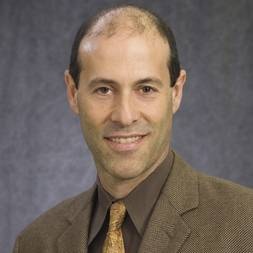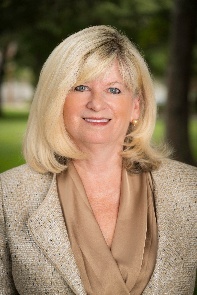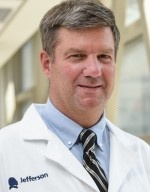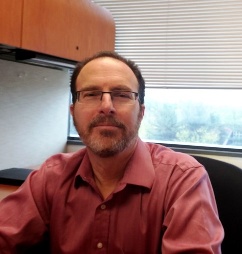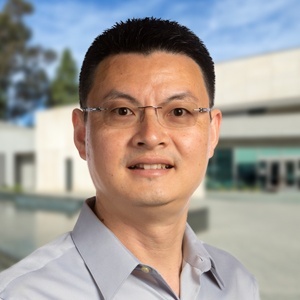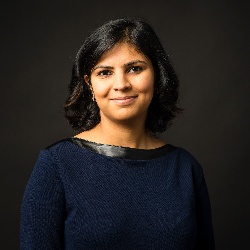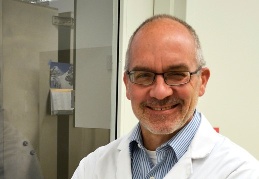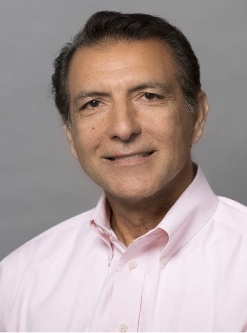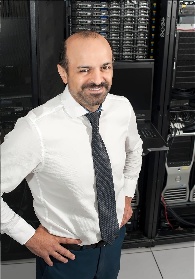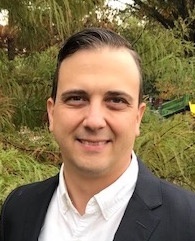 |
Blog
BIO:
Trained in environmental health and epidemiology, Dr. Peter James has focused his research on estimating the influence of geographic contextual factors, including exposure to nature, the built environment, the food environment, air pollution, light pollution, noise, and socioeconomic factors, on health behaviors and chronic disease. Dr. James has almost a decade of experience working with large prospective cohort studies, including the Nurses’ Health Studies, the Framingham Heart Study, and the Southern Community Cohort Study, where he has aided in the creation of many geographic-based variables and linked them to health data. More recently, Dr. James is developing methodologies to assess real-time, high spatio-temporal resolution objective measures of location and behavior by linking smartphone-based global positioning systems (GPS) and wearable device accelerometry data to understand how contextual factors influence health behaviors.
SUMMARY:
Topic: TBD
Speaker: Peter James, Sc.D., Assistant Professor, Harvard Medical School and Harvard Pilgrim Health Care Institute
Date: June 5, 2019
Time: 11:00 a.m. – 12:00 p.m.
Room: 1W032-034
WebEx: https://cbiit.webex.com/cbiit/onstage/g.php?MTID=e58d275d63b6495a6a2717f3c85630a3e
Event Number: 737 406 673
Event Password: $Peakerseries19
You are invited to listen to Dr. James' presentation in the NCI Shady Grove Building on Medical Center Drive or via WebEx. Dr. James will present remotely via WebEx.
Presentation: A screencast of the presentation will be available for viewing after the event on the NCI CBIIT Speaker Series YouTube Playlist.
About the NCI CBIIT Speaker Series:
The National Cancer Institute (NCI) Center for Biomedical Informatics and Information Technology (CBIIT) Speaker Series presents talks from innovators in the research and informatics communities. The biweekly presentations allow thought leaders to share their work and discuss trends across a diverse set of domains and interests. The goals of the Speaker Series are: to share leading-edge research; to inform the community of new tools, trends, and ideas; to inspire innovation, and to provide a forum from which new collaborations can begin. For additional information, including past speaker series presentations, visit the CBIIT Speaker Series page.
Individuals with disabilities who need reasonable accommodation to participate in this program should contact the Office of Space and Facilities Management (OSFM) at 240-276-5900 or the Federal TTY Relay number 1-800-877-8339.
Over the past 15 years, our group at the Dana-Farber/Harvard Cancer Center (DF/HCC) has built an evolving oncology clinical trials imaging informatics platform, Precision Imaging Metrics. This platform was built by and for the DF/HCC Tumor Imaging Metrics Core to manage the workflow, image assessments, communication, reporting, billing, and compliance needs of our cancer center and is currently used as a CCSG shared resource to manage over 1,000 active DF/HCC clinical trials and over 15,000 time point assessments per year, with turnaround time as fast as one hour after the scan. This software has been implemented at seven NCI-designated Cancer Centers around the country to improve clinical trials imaging assessment quality, compliance, and efficiency. NCI funding has been critical in the development and evolution of this software platform: a variety of grant mechanisms (CCSG, ITCR U24, SBIR, AIP) have supported our efforts in various ways as the project has grown and matured. This presentation will summarize the phases of the project and the ways NCI funding has supported us throughout the product life cycle.
BIO:
Gordon J. Harris, Ph.D. is the co-Director of the DF/HCC Tumor Imaging Metrics Core (TIMC), and Director of the MGH 3D Imaging Service. He is involved in imaging research, focusing on image analysis and visualization techniques, and application of these methods in both research and clinical services. Dr. Harris has developed methods for semi-automated quantitative measurement of tumor volumes, and these methods have been licensed and FDA-approved for clinical use. He and his team created the Precision Imaging Metrics software system to manage the workflow, imaging assessments, reporting, auditing, and billing for imaging trials, and to provide a centralized quantitative image analysis service for the DF/HCC community. This system is licensed for use at several other Cancer Centers.
SUMMARY:
Topic: NCI-funded Clinical Trials in Imaging Informatics, Machine Learning, and Open-Source Web-Viewer Technologies
Speaker: Gordon J. Harris, Ph.D., Massachusetts General Hospital
Date: April 24, 2019
Time: 11:00 a.m. – 12:00 p.m.
Room: 3E032-034
You are invited to listen to Dr. Harris' presentation in the NCI Shady Grove Building on Medical Center Drive or via WebEx. Dr. Harris will present remotely via WebEx.
Presentation: A screencast of the presentation will be available for viewing after the event on the NCI CBIIT Speaker Series YouTube Playlist.
About the NCI CBIIT Speaker Series:
The National Cancer Institute (NCI) Center for Biomedical Informatics and Information Technology (CBIIT) Speaker Series presents talks from innovators in the research and informatics communities. The biweekly presentations allow thought leaders to share their work and discuss trends across a diverse set of domains and interests. The goals of the Speaker Series are: to share leading-edge research; to inform the community of new tools, trends, and ideas; to inspire innovation, and to provide a forum from which new collaborations can begin. For additional information, including past speaker series presentations, visit the CBIIT Speaker Series page.
Individuals with disabilities who need reasonable accommodation to participate in this program should contact the Office of Space and Facilities Management (OSFM) at 240-276-5900 or the Federal TTY Relay number 1-800-877-8339.
Natural language processing (NLP) applied to unstructured text of patient records can assist in codifying data elements. We will describe the portability and reusability of NLP queries across institutions, introducing a technique called "Iterative Interactive Enrichment" to optimize identification of discrete data points within pathology reports for Non-Hodgkin's Lymphoma (NHL) patients.
Joyce Niland: Dr. Joyce Niland is the first holder of the Edward & Estelle Alexander Endowed Chair in Information Sciences at City of Hope Comprehensive Cancer Center. She received her Bachelor's degree in Human Biology from Stanford University, a Master's degree in Physical Therapy from the University of Southern California (USC) and Master's and Doctoral degrees in Biometry from USC. She is an Associate Director of City of Hope Cancer Center, Full Professor in the Beckman Research Institute, and adjunct professor in the USC Keck School of Medicine. Dr. Niland chairs the Department of Information Sciences, including the Divisions of Biostatistics, Clinical Research Information Management, and Research Informatics and Systems. In 2013 she was promoted to Chief Research Information Officer for City of Hope.
Dr. Niland has over 30 years of experience collaborating in translational research. She has published more than 140 biomedical research papers, numerous book chapters, and a text on informatics tools for clinical trials. She directed the National Comprehensive Cancer Center Network Outcomes Research Data Coordinating Center (DCC) for 15 years, and currently directs national DCCs for the Integrated Islet Distribution Program for Type 1 diabetes research, the Intestinal Stem Cell research consortium, and the Human Islet Research Network. Dr. Niland is on advisory boards for the Clinical Data Interchange Standards Consortium (CDISC), the Computational Statistics and Data Analysis (CSDA) journal, and the American Society of Clinical Oncology (ASCO) CancerLinq system. She is an elected Fellow of the American Statistical Association (ASA) and has served as Vice President of ASA and Scientific Secretary of the International Association of Statistical Computing. In 2004 she received the City of Hope Medical and Scientific Achievement award for her contributions to biomedical research.
SUMMARY:
Topic: A Systematic Approach to Building Natural Language Processing (NLP) for Automated Extraction of Data from Clinical Reports
Speaker: Joyce Niland, Ph.D., chair and professor in the Department of Diabetes & Cancer Discovery Science within City of Hope’s Diabetes & Metabolism Research Institute
Date: March 27, 2019
Time: 11:00 a.m. – 12:00 p.m.
Room: 1W032-034
WebEx: https://cbiit.webex.com/cbiit/onstage/g.php?MTID=e6fb8e4f33a6bae74b80c4f3db1feacc0
Event Number: 736 119 224
Event Password: $Peakerseries19
You are invited to listen to Dr. Niland's presentation in the NCI Shady Grove Building on Medical Center Drive or via WebEx. Dr. Niland will present remotely via WebEx.
Presentation: A screencast of the presentation will be available for viewing after the event on the NCI CBIIT Speaker Series YouTube Playlist.
About the NCI CBIIT Speaker Series:
The National Cancer Institute (NCI) Center for Biomedical Informatics and Information Technology (CBIIT) Speaker Series presents talks from innovators in the research and informatics communities. The biweekly presentations allow thought leaders to share their work and discuss trends across a diverse set of domains and interests. The goals of the Speaker Series are: to share leading-edge research; to inform the community of new tools, trends, and ideas; to inspire innovation, and to provide a forum from which new collaborations can begin. For additional information, including past speaker series presentations, visit the CBIIT Speaker Series page.
Individuals with disabilities who need reasonable accommodation to participate in this program should contact the Office of Space and Facilities Management (OSFM) at 240-276-5900 or the Federal TTY Relay number 1-800-877-8339.
A major barrier to the conduct of biomedical research is how difficult it is to share biomedical research data, both within and between institutions. Data located in different data repositories are almost always organized, categorized, and represented in different ways. This problem has been referred to as “the Chasm of Semantic Despair.” In an attempt to address this problem, the Cancer Informatics group at the NCI, in collaboration with their colleagues at the FDA, ISO, HL7, and CDISC, developed a new international standard data model for biomedical research called the Biomedical Research Integrated Domain Group (BRIDG) model. The purpose of the BRIDG model is to “bridge” the large number of Chasms of Semantic despair that exist both within and between academic medical centers, pharmaceutical companies, and government regulators. The Sidney Kimmel Cancer Center at Thomas Jefferson University in Philadelphia, has successfully designed and implemented a cancer research information system based on the NCI-BRIDG model. In this talk. Dr. Klumpp will describe how the BRIDG model has been implemented in the cancer research information system at Thomas Jefferson and the benefits of such an integrated system.
SUMMARY:
Topic: Design and Implementation of a Multipurpose BRIDG-Harmonized Cancer Research Information System
Speaker: Thomas Klumpp, M.D., Professor of Medical Oncology, Medical Director, Cancer Informatics Data Systems Group, Thomas Jefferson University Medical Center, Statistical Analysis Systems (SAS) Certified Professional, Version 8
Date: February 27, 2019
Time: 11:00 a.m. – 12:00 p.m.
You are invited to listen to Dr. Klumpp's presentation in the NCI Shady Grove Building on Medical Center Drive or via WebEx. Dr. Klumpp will present in person at Shady Grove.
Presentation: A screencast of the presentation will be available for viewing after the event on the NCI CBIIT Speaker Series YouTube Playlist.
About the NCI CBIIT Speaker Series:
The National Cancer Institute (NCI) Center for Biomedical Informatics and Information Technology (CBIIT) Speaker Series presents talks from innovators in the research and informatics communities. The biweekly presentations allow thought leaders to share their work and discuss trends across a diverse set of domains and interests. The goals of the Speaker Series are: to share leading-edge research; to inform the community of new tools, trends, and ideas; to inspire innovation, and to provide a forum from which new collaborations can begin. For additional information, including past speaker series presentations, visit the CBIIT Speaker Series page.
Individuals with disabilities who need reasonable accommodation to participate in this program should contact the Office of Space and Facilities Management (OSFM) at 240-276-5900 or the Federal TTY Relay number 1-800-877-8339.
FDA, CDC, NIH (NCATS) are developing a FHIR based infrastructure that facilitates interactions with the four most prevalent Common Data Models (CDMs) - Sentinel , OMOP, i2b2/ACT and PCORNet - from a single portal. The infrastructure allows investigators the ability to create a universal query that can be run against all four CDMs, a secure transport and aggregation of the cross CDM query results, and the ability to submit the results directly to the FDA as a CDISC STDM file.
Dr. Kenneth Gersing joined NCATS in 2016 as the Director of Informatics in the Division of Clinical Innovation and he became a federal employee in 2017. Dr. Gersing is a psychiatrist and informatics expert, and was the Director of Clinical Information Systems, Duke Department of Psychiatry, from 1997 to 2015. Dr. Gersing was the creator Mindlinc Inc., a medical software company. Mindlinc includes informatics applications highly relevant to activities within DCI and ORDR, such as an electronic medical record, a research data warehouse, and electronic data capture and patient reported outcomes for use in clinical trials. At NCATS, Dr. Gersing will focus on informatics, and help advance the integration of health and research data, and promote the use of cutting edge informatics to advance the translation from discovery to health benefit.
SUMMARY:
Topic: Common Data Model Harmonization: Real World Data to FDA Submission with FHIR
Speaker: Kenneth Gersing, M.D., Director of Informatics, Division of Clinical Innovation, National Center for Advancing Translational Sciences (NCATS), National Institutes of Health
Date: February 13, 2019
Time: 11:00 a.m. – 12:00 p.m.
You are invited to listen to Dr. Gersing's presentation in the NCI Shady Grove Building on Medical Center Drive or via WebEx. Dr. Gersing will present remotely via WebEx.
Presentation: A screencast of the presentation will be available for viewing after the event on the NCI CBIIT Speaker Series YouTube Playlist.
About the NCI CBIIT Speaker Series:
The National Cancer Institute (NCI) Center for Biomedical Informatics and Information Technology (CBIIT) Speaker Series presents talks from innovators in the research and informatics communities. The biweekly presentations allow thought leaders to share their work and discuss trends across a diverse set of domains and interests. The goals of the Speaker Series are: to share leading-edge research; to inform the community of new tools, trends, and ideas; to inspire innovation, and to provide a forum from which new collaborations can begin. For additional information, including past speaker series presentations, visit the CBIIT Speaker Series page.
Individuals with disabilities who need reasonable accommodation to participate in this program should contact the Office of Space and Facilities Management (OSFM) at 240-276-5900 or the Federal TTY Relay number 1-800-877-8339.
Building a web-based API (Application Programming Interface) has been rapidly adopted in the bioinformatics field as a new way of disseminating the underlying biomedical knowledge. While researchers benefit from the simplicity and the high accessibility (A) of available APIs, the findability (F), interoperability (I) and reusability (R) across APIs are largely not well-handled by the community. BioThings API project (http://biothings.io) is tasked to build a FAIR API ecosystem to better serve the underlying inter-connected biomedical knowledge. BioThings API provides three components in its API development ecosystem. First, it provides a family of high-performance APIs for accessing up-to-date annotations for genes, genetic variants, chemicals and drugs. Second, BioThings API packages its API-development best practice into a reusable SDK (Software Development Kit) to help other bioinformaticians to build the same high-quality API to distribute their own specific knowledge. Third, BioThings API provides a platform to foster the findability and interoperability across the community-developed biomedical APIs. Through the SmartAPI application (http://smart-api.info), it provides tools for authoring API metadata following the community supported OpenAPI standard and hosts standardized interactive API documentation. It also defines a set of OpenAPI extensions to provide biomedical-specific semantic annotations, such as what specific biomedical identifiers an API parameter accepts and what specific biomedical entity types an API response contains. Powered by these semantic annotations, a new web application called BioThings Explorer was developed to allow researchers to navigate the scope of the distributed biomedical API landscape and build the desired knowledge extraction workflows by identifying and combining required APIs. BIO:
Dr. Chunlei Wu is an Associate Professor of Integrative Structural and Computational Biology at Scripps Research. His research focuses on applying data science methodology and cloud computing technologies to facilitate biomedical discovery, through the large-scale biological data integration. Representative projects include the BioGPS, MyGene.Info, MyVariant.info, BioThings and SmartAPI, each of which helps either wet-lab biologists or dry-lab bioinformaticians to obtain and integrate relevant information in a more efficient and integrated way. These resources are now widely used (with collectively millions of requests per month) in the research community to help produce new biomedical discoveries. Dr. Wu received his undergraduate degree in Biochemistry from Nanjing University and his Ph.D. in Biomathematics and Biostatistics from The University of Texas Health Science Center at Houston. Prior to joining Scripps Research in 2011, he was the Research Investigator at the Genomics Institute of the Novartis Research Foundation (GNF).
SUMMARY:
Topic: BioThings API: Building a FAIR API Ecosystem for Biomedical Knowledge
Speaker: Chunlei Wu, Ph.D., Associate Professor of Integrative Structural and Computational Biology, Scripps Research
Date: January 16, 2018
Time: 11:00 a.m. – 12:00 p.m.
Presentation: A screencast of the presentation will be available for viewing after the event on the NCI CBIIT Speaker Series YouTube Playlist.
About the NCI CBIIT Speaker Series:
The National Cancer Institute (NCI) Center for Biomedical Informatics and Information Technology (CBIIT) Speaker Series presents talks from innovators in the research and informatics communities. The biweekly presentations allow thought leaders to share their work and discuss trends across a diverse set of domains and interests. The goals of the Speaker Series are: to share leading-edge research; to inform the community of new tools, trends, and ideas; to inspire innovation, and to provide a forum from which new collaborations can begin. For additional information, including past speaker series presentations, visit the CBIIT Speaker Series page.
Individuals with disabilities who need reasonable accommodation to participate in this program should contact the Office of Space and Facilities Management (OSFM) at 240-276-5900 or the Federal TTY Relay number 1-800-877-8339.
In this talk, Dr. Smith will describe the work he and his lab are doing to progress the state of Informatics for Computational Mass Spectrometry to further proteomic research.
Rob Smith is a scientist and entrepreneur dedicated to saving mass spectrometrists from bad software. He believes computational mass spectrometry is ripe for a revolution that will be catalyzed by advances in interfaces, algorithms, and data management. His recent academic research has focused on assessing the state of the art of computational mass spectrometry by interviewing users and conducting quantitative evaluations made possible through custom-developed technology. In addition to his position as an Associate Professor of Computer Science at the University of Montana, Dr. Smith recently founded Prime Labs, Inc., whose mission is to develop software for mass spectrometry that people actually like.
SUMMARY:
Topic: Informatics for Computational Mass Spectrometry
Speaker: Rob Smith, Ph.D., Assistant Professor of Computer Science, University of Montana
Date: December 19, 2018
Time: 11:00 a.m. – 12:00 p.m.
You are invited to listen to Dr. Smith's presentation in the NCI Shady Grove Building on Medical Center Drive or via WebEx. Dr. Smith will present remotely via WebEx.
Presentation: A screencast of the presentation will be available for viewing after the event on the NCI CBIIT Speaker Series YouTube Playlist.
About the NCI CBIIT Speaker Series:
The National Cancer Institute (NCI) Center for Biomedical Informatics and Information Technology (CBIIT) Speaker Series presents talks from innovators in the research and informatics communities. The biweekly presentations allow thought leaders to share their work and discuss trends across a diverse set of domains and interests. The goals of the Speaker Series are: to share leading-edge research; to inform the community of new tools, trends, and ideas; to inspire innovation, and to provide a forum from which new collaborations can begin. For additional information, including past speaker series presentations, visit the CBIIT Speaker Series page .
Individuals with disabilities who need reasonable accommodation to participate in this program should contact the Office of Space and Facilities Management (OSFM) at 240-276-5900 or the Federal TTY Relay number 1-800-877-8339.
Definite diagnosis of cancer presence or recurrence is currently only possible via invasive biopsy or surgical intervention. Unfortunately, invasive biopsy, (a) in many cases is unnecessary due to absence of the disease, (b) have sampling errors depending on where the tissue sample is acquired from, and (c) could have irreparable and life-threatening side effects including mortality. Recently, artificial intelligence and radiomics have shown tremendous promise in leveraging imaging to non-invasively capture the landscape of tissue heterogeneity, previously not feasible by visual inspection. Similarly, one would leverage -omics and pathology information in conjunction with routine imaging to establish cross-scale associations towards designing more optimized personalized treatment options for cancer treatment. In this talk, I will focus on my lab’s recent efforts in developing radiomic (extracting computerized sub-visual features from radiologic imaging), radio-genomic (identifying radiologic features associated with molecular phenotypes), and radio-pathomic (radiologic features associated with pathologic phenotypes) techniques to capture insights into the underlying tumor biology as observed on non-invasive routine imaging. I will focus on clinical applications of this work for predicting disease outcome, recurrence, progression and response to therapy specifically in the context of brain tumors. I will also discuss our current efforts in developing new radiomic features for post-treatment evaluation and predicting response to chemo-radiation treatment. I will conclude with a discussion on our recent findings in AI + experts, in the context of a clinically challenging problem of distinguishing benign radiation effects from tumor recurrence on routine MRI scans.
BIO:
Dr. Pallavi Tiwari is an assistant professor of Biomedical Engineering and the director of Brain Image Computing laboratory at Case Western Reserve University. She is also an associate member of the Case Comprehensive Cancer Center. Dr. Tiwari got her undergraduate degree in Biomedical Engineering in 2006, and her Master's in Biomedical Engineering in 2008. She finished her Ph.D. from Rutgers University in 2012, and moved to Case Western Reserve as an assistant research professor. In 2016, she started the Brain Image Computing lab as a tenure-track assistant professor at Case Western. Her research interests lie in pattern recognition, data mining, and image analysis for automated computerized diagnostic, prognostic, and treatment evaluation solutions using radiologic imaging. In 2015, Dr. Tiwari was named by the government of India as one of 100 women achievers for making a positive impact in the field of science and innovation. She has been a recipient of many research-related awards including Case-Coulter Translational award, Department of Defense Career Development Award, and Dana Foundation Neuroimaging Award; and is currently leading a team of researchers on multiple projects in prognosis and treatment evaluation in brain tumors and neurological disorders.
SUMMARY:
Topic: Radiomics, Radiogenomics, and Radiopathomics for Predicting and Evaluating Response to Cancer Treatment
Speaker: Pallavi Tiwari, Ph.D., Case Western University
Date: Wednesday, October 24, 2018
You are invited to listen to Dr. Tiwari's presentation in the NCI Shady Grove Building on Medical Center Drive or via WebEx. Dr. Tiwari will present remotely via WebEx.
Presentation: A screencast of the presentation will be available for viewing after the event on the NCI CBIIT Speaker Series YouTube Playlist.
About the NCI CBIIT Speaker Series:
The National Cancer Institute (NCI) Center for Biomedical Informatics and Information Technology (CBIIT) Speaker Series presents talks from innovators in the research and informatics communities. The biweekly presentations allow thought leaders to share their work and discuss trends across a diverse set of domains and interests. The goals of the Speaker Series are: to share leading-edge research; to inform the community of new tools, trends, and ideas; to inspire innovation, and to provide a forum from which new collaborations can begin. For additional information, including past speaker series presentations, visit the CBIIT Speaker Series page.
Individuals with disabilities who need reasonable accommodation to participate in this program should contact the Office of Space and Facilities Management (OSFM) at 240-276-5900 or the Federal TTY Relay number 1-800-877-8339.
This special 90-minute session of the CBIIT Speaker Series will feature demos of three tools that were developed through funding by the Informatics Technology for Cancer Research (ITCR) Program.
BIOS:
Jim Robinson is a Principal Software Engineer at the University of California, San Diego. His work over the past 20 years has focused on the design and development of bioinformatics and visualization software for researchers and clinicians in the biomedical community. Jim has been the architect and lead developer of the Integrative Genomics Viewer (IGV) since its inception.
Helga Thorvaldsdottir is a Software Engineering Manager at the Broad Institute. Helga holds an M.S. in Computer Science from the University of North Carolina at Chapel Hill, where she focused on interactive 3D computer graphics. After a decade developing computer graphics software for hardware companies in Silicon Valley, Helga turned her attention to software development for biomedical researchers, first at Iceland Genomics Corporation and then the Broad Institute. Helga has been a key member of the team that develops the Integrative Genomics Viewer (IGV) since before its initial release in 2008.
Mary Goldman has been working in genomics for eight years, both for the UCSC Genome Browser and the UCSC Cancer Research Group. She currently focuses primarily on UCSC Xena (http://xena.ucsc.edu), a visual integration and exploration tool for multi-omic data and associated clinical and phenotypic annotations. Mary engages with researchers of all skill levels through workshops, presentations, papers, posters, social media and more. She also led the user design efforts, including user testing, prototyping, and feedback.
Alexander Krasnitz and colleagues develop mathematical and statistical tools to investigate population structure of cells comprising a malignant tumor and to reconstruct evolutionary processes leading up to that structure. These tools are designed to make optimal use of emerging molecular technologies, chief among them high-throughput genomic profiling of multiple individual cells harvested from a tumor. By analyzing these profiles, Krasnitz derives novel molecular measures of malignancy, such as the number of aggressive clones in a tumor, the invasive capacity of each clone and the amount of cancer-related genetic alteration sustained by clonal cells. Krasnitz and colleagues collaborate closely with clinical oncologists to explore the utility of such measures for earlier detection of cancer, more accurate patient outcome prediction and risk assessment, and better-informed choice of treatment options.
SUMMARY:
Topics/Speakers:
- Integrative Genomics Viewer — Jim Robinson, University of California, San Diego and Helga Thorvaldsdottir, Broad Institute, UC San Diego
- UCSC Xena — Mary Goldman, UC Santa Cruz, Design & Usability Engineer, Xena
- Single Cell Genome Viewer — Alexander Krasnitz, Ph.D., Associate Professor, Cold Spring Harbor National Lab
Date: Wednesday, October 10, 2018
You are invited to listen to all speaker presentations in the NCI Shady Grove Building on Medical Center Drive or via WebEx. All speakers will present remotely via WebEx.
Presentation: A screencast of the presentation will be available for viewing after the event on the NCI CBIIT Speaker Series YouTube Playlist
About the NCI CBIIT Speaker Series:
The National Cancer Institute (NCI) Center for Biomedical Informatics and Information Technology (CBIIT) Speaker Series presents talks from innovators in the research and informatics communities. The biweekly presentations allow thought leaders to share their work and discuss trends across a diverse set of domains and interests. The goals of the Speaker Series are: to share leading-edge research; to inform the community of new tools, trends, and ideas; to inspire innovation, and to provide a forum from which new collaborations can begin. For additional information, including past speaker series presentations, visit the CBIIT Speaker Series page.
Individuals with disabilities who need reasonable accommodation to participate in this program should contact the Office of Space and Facilities Management (OSFM) at 240-276-5900 or the Federal TTY Relay number 1-800-877-8339.
Cancer patients and their doctors choose from a range of different treatment options. But often the chosen treatment is ineffective, reducing quality and length of life and increasing cost. Today treatment decisions and outcomes occur in isolation. All4Cure has built a patient-centered, web-based, knowledge sharing platform that graphically portrays treatments and responses extracted from the medical records of de-identified patients with multiple myeloma (the second most common form of blood cancer) for comment by a community of participating patients, clinicians and researchers. Having assembled more than 580 participants we will describe examples of patients have benefited from their participation.
BIO:
Dr. Tony Blau founded All4Cure after 27 years as a Professor of Medicine/Hematology and physician-scientist at the University of Washington (UW). His research has spanned hematopoiesis, gene therapy, stem cell biology, genomics and cancer, consistently focusing on bringing the very latest research advances to patients with heretofore incurable diseases. At UW Dr. Blau founded the Center for Cancer Innovation, which brings together a distributed network of investigators to help patients with advanced cancer. Dr. Blau co-founded the UW Institute for Stem Cell and Regenerative Medicine and chaired the Molecular and Cellular Hematology Study Section for the National Institutes of Health. He has authored more than 90 scientific publications. Diagnosed himself with myeloma in April 2015, Dr. Blau infuses All4Cure with an incredible sense of urgency to improve the prospects for cancer patients now and in the future.
SUMMARY:
Topic: A Cancer Patient's War on Cancer
Speaker: C. Anthony Blau, M.D., Professor of Hematology, University of Washington School of Medicine
Date: Wednesday, September 12, 2018
Time: 11 AM – 12 PM ET
Room: 1W032-034
You are invited to listen to Dr. Blau's presentation in the NCI Shady Grove Building on Medical Center Drive or via WebEx. Dr. Blau will present remotely via WebEx.
Presentation: A screencast of the presentation will be available for viewing after the event on the NCI CBIIT Speaker Series YouTube Playlist
About the NCI CBIIT Speaker Series:
The National Cancer Institute (NCI) Center for Biomedical Informatics and Information Technology (CBIIT) Speaker Series presents talks from innovators in the research and informatics communities. The biweekly presentations allow thought leaders to share their work and discuss trends across a diverse set of domains and interests. The goals of the Speaker Series are: to share leading-edge research; to inform the community of new tools, trends, and ideas; to inspire innovation, and to provide a forum from which new collaborations can begin. For additional information, including past speaker series presentations, visit the CBIIT Speaker Series page.
Individuals with disabilities who need reasonable accommodation to participate in this program should contact the Office of Space and Facilities Management (OSFM) at 240-276-5900 or the Federal TTY Relay number 1-800-877-8339.
Cancer is a complex category of diseases caused in large part by genetic or genomic, transcriptomic, proteomic, and epigenomics alterations leading to abnormal cell proliferation. Genes and their protein products rarely act in isolation. Therefore, it is necessary to utilize a comprehensive and integrated computational approach informed by systems biology and omics-oriented approaches to investigate the disruption of biological networks caused by genomic alterations. In this talk, Dr. Meerzaman will describe two ongoing projects. The first focuses on Sequencing Quality Control Phase 2 (SEQC II), a collaborative project led by the Food and Drug Administration (FDA) that systematically investigated somatic mutations in paired breast cancer and normal cell lines and formulated best practices for identifying, or calling, genomic variations such as single-nucleotide polymorphisms, copy-number alterations, or single-nucleotide variants. Regarding the second project, Dr. Meerzaman will discuss methods developed by the CGBG team to use mutual exclusivity and pathway network interaction algorithms to identify low-frequency “driver” (that is, causative) genomic alterations at the pathway level.
BIO:
Dr. Daoud Meerzaman joined the Computational Genomics and Biomedical informatics Group (CGBG) at NCI's Center for Biomedical Informatics and Information Technology (CBIIT) in 2012. Currently, Dr. Meerzaman serves as the Section Head for the Computational Genomics and Biomedical informatics group (CGBG) where he provides leadership and scientific direction to highly trained bioinformatics scientists at CGBG. Under his supervision, the CGBG provides bioinformatics analysis support for clinical, life sciences, and translational research for the intermural scientist at the National Cancer Institute. Previously, CGBG team provided state-of-the-art biomedical informatics services and algorithms to carry out functional genomics analysis for NCI initiated projects such as Therapeutically Applicable Research to Generate Effective Treatments (TARGET) and The Cancer Genome Atlas (TCGA). Dr. Meerzaman has published many articles in peer-reviewed journals and served as editor as well as reviewer for scientific journals. He also serves as an adjunct faculty member at the George Washington University in Washington, D.C., where he currently teaches molecular mechanisms of cancer. Dr. Meerzaman received his B.S. and doctorate degrees from George Washington University.
SUMMARY:
Topic: Benchmarking and Network Modeling Using Mutual Exclusivity to Identify Genomic Alterations in Cancer
Speaker: Daoud Meerzaman, Ph.D., Section Head for the Computational Genomics and Biomedical informatics group (CGBG)
Date: Wednesday, July 18, 2018
Time: 11 AM – 12 PM ET
You are invited to listen to Dr. Meerzaman's presentation in the NCI Shady Grove Building on Medical Center Drive or via WebEx. Dr. Meerzaman will present onsite at Shady Grove.
Presentation: A screencast of the presentation will be available for viewing after the event on the NCI CBIIT Speaker Series YouTube Playlist
About the NCI CBIIT Speaker Series:
The National Cancer Institute (NCI) Center for Biomedical Informatics and Information Technology (CBIIT) Speaker Series presents talks from innovators in the research and informatics communities. The biweekly presentations allow thought leaders to share their work and discuss trends across a diverse set of domains and interests. The goals of the Speaker Series are: to share leading edge research; to inform the community of new tools, trends, and ideas; to inspire innovation; and to provide a forum from which new collaborations can begin. For additional information, including past speaker series presentations, visit the CBIIT Speaker Series page.
Individuals with disabilities who need reasonable accommodation to participate in this program should contact the Office of Space and Facilities Management (OSFM) at 240-276-5900 or the Federal TTY Relay number 1-800-877-8339.
Deep learning methods have shown substantial promise across many tasks, including some relevant to biomedicine. I'll chat about some examples of how these algorithms can be used as well as the challenges that I expect us to face as we start using these on a massive scale. Also, as deep learning methods proliferate in the biomedical sciences, I expect that we will need to reconsider how we discuss reproducibility in computational research. I'll touch on a couple steps towards these objectives, but substantially more work will be needed.
BIO:
Dr. Casey Greene is an Assistant Professor of Systems Pharmacology and Translational Therapeutics in the Perelman School of Medicine at the University of Pennsylvania. Dr. Greene's lab develops deep learning methods that integrate distinct large-scale datasets to extract the rich and intrinsic information embedded in such integrated data. This approach reveals underlying principles of an organism’s genetics, its environment, and its response to that environment. Extracting this key contextual information reveals where the data’s context doesn’t fit existing models and raises the questions that a complete collection of publicly available data indicates researchers should be asking. In addition to developing deep learning methods for extracting context, a core mission of his lab is bringing these capabilities into every molecular biology lab. Before starting the Integrative Genomics Lab in 2012, he earned his Ph.D. for his study of gene-gene interactions in the field of computational genetics from Dartmouth College in 2009 and moved to the Lewis-Sigler Institute for Integrative Genomics at Princeton University where he worked as a postdoctoral fellow from 2009-2012. The overarching theme of his work has been the development and evaluation of methods that acknowledge the emergent complexity of biological systems.
SUMMARY:
Topic: Deep Learning: What Is It Good For?
Speaker: Casey Greene, Ph.D., Assistant Professor of Pharmacology, University of Pennsylvania, Perelman School of Medicine
Date: Wednesday, June 20, 2018
Time: 11 AM – 12 PM ET
Room: 7E030
WebEx: https://cbiit.webex.com/cbiit/onstage/g.php?MTID=ecc6be42f6ce7417bb97aa4ffba916093
Event Number: 735 389 625
Event Password: $Peakerseries18
You are invited to listen to Dr. Greene's presentation in the NCI Shady Grove Building on Medical Center Drive or via WebEx. Dr. Greene will present remotely via WebEx.
Presentation: A screencast of the presentation will be available for viewing after the event on the NCI CBIIT Speaker Series YouTube Playlist
About the NCI CBIIT Speaker Series:
The National Cancer Institute (NCI) Center for Biomedical Informatics and Information Technology (CBIIT) Speaker Series presents talks from innovators in the research and informatics communities. The biweekly presentations allow thought leaders to share their work and discuss trends across a diverse set of domains and interests. The goals of the Speaker Series are: to share leading edge research; to inform the community of new tools, trends, and ideas; to inspire innovation; and to provide a forum from which new collaborations can begin. For additional information, including past speaker series presentations, visit the CBIIT Speaker Series page.
Individuals with disabilities who need reasonable accommodation to participate in this program should contact the Office of Space and Facilities Management (OSFM) at 240-276-5900 or the Federal TTY Relay number 1-800-877-8339.
The success of an AI system depends on the amount and quality of data used to train it. The database that was key to the latest AI revolution (ImageNet) contains millions of real-life images labeled into thousands of categories. No data collections of comparable extent and quality exist for radiology data. By many, this is considered to be the biggest challenge for AI in radiology. Training of AI models requires medical images accompanied by metadata and expert annotations (e.g., spatial location of the finding, its clinical characteristics), ideally linked with the non-imaging part of the patient record (e.g., biopsy results, genomic and blood serum tests). Large volumes of clinical images are routinely collected, interpreted visually and analyzed quantitatively, both in clinical and research studies. Nevertheless, the result is often optimized for reuse by a human — not an algorithm. Tremendous effort is often needed to prepare datasets for AI training, combine data sets across sites or collections, or aggregate versatile datasets as often required to develop robust models. With the recent advances in automated imaging-based tissue phenotyping (radiomics) and other relevant AI technologies, there is a new realization of the value of the large, structured AI-ready datasets. There are many obstacles and few incentives for engineering datasets to optimize machine-level reusability. Non-technical issues aside, there are major challenges of choosing a data format, defining a data model, deciding what attributes of the data may be valuable for the future unforeseen use cases and how those can be captured in a structured and self-documenting manner, and identifying practical tools to help with those tasks. Over the past five years, we have directed our efforts to incrementally and collaboratively advance data engineering practices as applied to medical imaging research. We are extending the existing, broadly adopted DICOM standard, to support the needs of medical imaging research applications, and subsequent implementation into clinical systems. We develop open source tools that enable standardization of common outputs of image analysis. We established collaborations with a number of academic and industry groups to encourage, support and evaluate adoption of the standard. We have been leading efforts in training and outreach, aiming to educate the community about the capabilities of the standard and the supporting tools. In parallel with developing support for the generic data types commonly encountered in imaging research, we are also working on targeted solutions for the specific research workflows of interest in several cancer types. In this talk, I will discuss our progress to date in developing the ecosystem of standards, tools, use cases, datasets, publications, and outreach activities that have the overarching goal of improving data engineering practices. I will also present some of our ongoing work developing integrated technology solutions that are used to support clinical research at our site, and the role of data as the backbone of downstream innovation.
BIO:
Andrey Fedorov is an Assistant Professor in Radiology at the Surgical Planning Laboratory (SPL), Department of Radiology, Brigham and Women's Hospital and Harvard Medical School. Andrey joined SPL in 2009 after obtaining his Ph.D. in Computer Science from The College of William and Mary in Virginia. His research is in translation and validation of medical image computing technology in clinical research applications, with the focus on quantitative imaging, imaging informatics and image-guided interventional procedures. Andrey is committed to advancing the role of reproducible science, data sharing and open source software in academic research. He has contributed to a number of open source projects, most notably 3D Slicer (http://slicer.org). Together with Ron Kikinis, he is a co-PI of the Quantitative Image Informatics for Cancer Research (QIICR) project (http://qiicr.org) focused on developing open source informatics technology in support of quantitative imaging biomarker development, and interoperable sharing of the imaging biomarker data using the Digital Imaging and Communications in Medicine (DICOM) standard.
SUMMARY:
Topic: Your Source Code is Your Data: Data Engineering for Medical Imaging Research in the Era of AI
Speaker: Andrey Fedorov, Ph.D., Surgical Planning Laboratory, Brigham and Women's Hospital
Date: Wednesday, May 9, 2018
Time: 11 AM – 12 PM ET
Room: 2E908
You are invited to listen to Dr. Fedorov's presentation in the NCI Shady Grove Building on Medical Center Drive or via WebEx. Dr. Fedorov will present remotely via WebEx.
Presentation: A screencast of the presentation will be available for viewing after the event on the NCI CBIIT Speaker Series YouTube Playlist
About the NCI CBIIT Speaker Series:
The National Cancer Institute (NCI) Center for Biomedical Informatics and Information Technology (CBIIT) Speaker Series presents talks from innovators in the research and informatics communities. The biweekly presentations allow thought leaders to share their work and discuss trends across a diverse set of domains and interests. The goals of the Speaker Series are: to share leading edge research; to inform the community of new tools, trends, and ideas; to inspire innovation; and to provide a forum from which new collaborations can begin. For additional information, including past speaker series presentations, visit the CBIIT Speaker Series page.
Individuals with disabilities who need reasonable accommodation to participate in this program should contact the Office of Space and Facilities Management (OSFM) at 240-276-5900 or the Federal TTY Relay number 1-800-877-8339.
During this presentation, Dr. Simonyan will discuss WHISE for creating incentives and promoting the liberation of health data through patient ownership, exchange of proprietary data, and by adding value through intellectual and analytic insights. The WHISE technology provides a service based architecture where the exchange between consumer and owner of information can happen with data or with derived and computed information. It allows assetization of data and commoditization of data access.
BIO:
Dr. Vahan Simonyan has a solid scientific background in varied academic disciplines: M.S. in Physical Organic Chemistry, Ph.D. in Quantum Physics and Mathematics, post-doctoral training in Nanotechnology and Quantum Statistical Thermodynamics. After 2001, he switched his expertise to biotechnology and biomedical informatics and currently serves at the FDA as a lead scientist of HIVE, R&D Director of Bioinformatics. Vahan is a prolific author of scientific publications in physics, chemistry, quantum chemistry, nanotechnology, biotechnology, population dynamics, and bioinformatics. Additionally, Dr. Simonyan is an adjunct professor at the George Washington University, where he teaches and develops curriculums for biomedical big data informatics and biostatistics research and development courses. His accomplishments in academic and R&D technology carriers have been complemented with the success of technology leadership roles at NCBI and FDA where he established large-scale and complex, science-heavy R&D infrastructures capable of serving worldwide communities for research and regulatory purposes.
In 2013, High-performance Integrated Virtual Environment (HIVE) codebase was donated by Dr. Simonyan to the US government in order to build a platform ready to accept NGS data at the US FDA for regulatory review. Today HIVE has supported regulatory review and research leading to peer-reviewed publications in genetics, genomics, proteomics, data modeling, and bioinformatics.
In 2016, Dr. Simonyan and his colleagues (Raja Mazumder and Jeremy Goecks) have published the first BioCompute paper where they introduced the new concept for bioinformatics harmonization. Today BioCompute is represented by a large international consortium of regulatory and research scientists from academia, industry, technology companies and government organizations.
In 2017, the technology experts Dr. Simonyan (FDA) and Shahram Ebadollahi (IBM) have led a research collaboration between FDA and IBM on testing feasibility of blockchain for healthcare data. The initiative called Healthcare Data Exchange Framework (HDEF) targets the facilitation of healthcare data transactions by creating an incentive framework for patient ownership of their medical data.
SUMMARY:
Topic: Wellness and Health Information Secure Exchange (WHISE): A Scalable Economy for Healthcare Data Markets
Speaker: Vahan Simonyan, Ph.D., George Washington University, School of Medicine and Health Sciences
Date: Wednesday, April 25, 2018
You are invited to listen to Dr. Simonyan's presentation in the NCI Shady Grove Building on Medical Center Drive or via WebEx. Dr. Simonyan will present onsite at the Shady Grove location.
Presentation: A screencast of the presentation will be available for viewing after the event on the NCI CBIIT Speaker Series YouTube Playlist
About the NCI CBIIT Speaker Series:
The National Cancer Institute (NCI) Center for Biomedical Informatics and Information Technology (CBIIT) Speaker Series presents talks from innovators in the research and informatics communities. The biweekly presentations allow thought leaders to share their work and discuss trends across a diverse set of domains and interests. The goals of the Speaker Series are: to share leading edge research; to inform the community of new tools, trends, and ideas; to inspire innovation; and to provide a forum from which new collaborations can begin. For additional information, including past speaker series presentations, visit the CBIIT Speaker Series page.
Individuals with disabilities who need reasonable accommodation to participate in this program should contact the Office of Space and Facilities Management (OSFM) at 240-276-5900 or the Federal TTY Relay number 1-800-877-8339.
Predicting treatment response and the course of a patient’s disease is critical in selecting therapy and in helping patients to plan their lives. Despite the rich data produced by genomic and imaging platforms, the accuracy of prognostication for patients diagnosed with cancer can be highly variable, often relying on classification by only a handful of molecular biomarkers or subjective interpretation of histology. While deep learning has emerged as a powerful technology for learning from unstructured images or other high-dimensional data, its application has largely focused on classification and has not widely explored predicting the timing of disease progression, overall survival, or other time-to-event clinical outcomes. In this talk, Dr. Cooper will discuss recent advances in developing deep-learning based survival models for predicting cancer outcomes from genomic and digital pathology imaging data. He will show how conventional survival models can be combined with convolutional networks or other neural networks to learn patterns associated with patient outcomes in digital pathology images or genomic signatures. Using gliomas as a driving use case, he will describe how these models can combine histology and genomics to provide unified and highly accurate predictions of overall survival, and illustrate how these models can be deconstructed to improve validation and reveal biological insights.
BIO:
Lee Cooper, Ph.D., is an Assistant Professor of Biomedical Informatics and Biomedical Engineering at the Emory University School of Medicine/Georgia Institute of Technology. Lee joined Emory in 2009 after receiving his Ph.D. in Electrical and Computer Engineering from Ohio State University College of Engineering. His research focuses on machine-learning methods for predicting patient outcomes, and developing open-source software infrastructure that allows investigators to interact with complex pathology datasets and learning algorithms.
SUMMARY:
Topic: Predicting Cancer Outcomes from Genomics and Histology with Deep Learning
Speaker: Lee Cooper, Ph.D., Emory University School of Medicine
Date: Wednesday, April 11, 2018
Time: 11 AM – 12 PM ET
You are invited to listen to Dr. Cooper's presentation in the NCI Shady Grove Building on Medical Center Drive or via WebEx. Dr. Cooper will present via WebEx.
Presentation: A screencast of the presentation will be available for viewing after the event on the NCI CBIIT Speaker Series YouTube Playlist
About the NCI CBIIT Speaker Series:
The National Cancer Institute (NCI) Center for Biomedical Informatics and Information Technology (CBIIT) Speaker Series presents talks from innovators in the research and informatics communities. The biweekly presentations allow thought leaders to share their work and discuss trends across a diverse set of domains and interests. The goals of the Speaker Series are: to share leading edge research; to inform the community of new tools, trends, and ideas; to inspire innovation; and to provide a forum from which new collaborations can begin. For additional information, including past speaker series presentations, visit the CBIIT Speaker Series page.
Individuals with disabilities who need reasonable accommodation to participate in this program should contact the Office of Space and Facilities Management (OSFM) at 240-276-5900 or the Federal TTY Relay number 1-800-877-8339.

